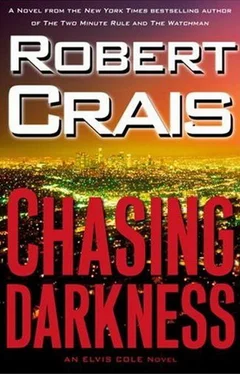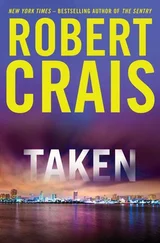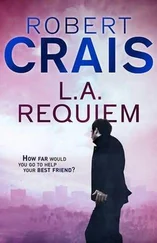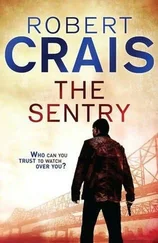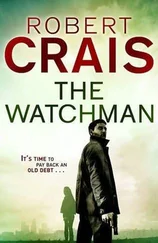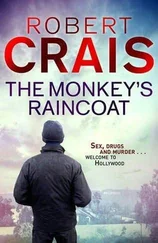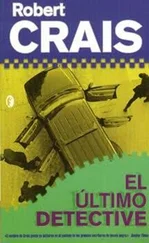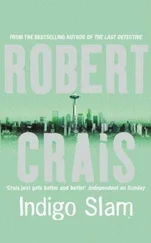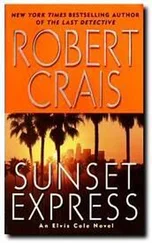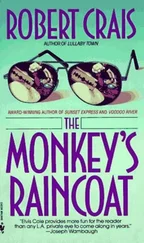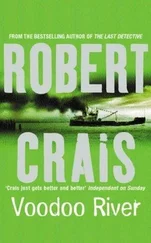Bastilla hesitated.
“Why would you ask something like that?”
“A woman named Ivy Casik used to pick up groceries for him. Byrd told her a reporter was writing a book about how he was railroaded for the Bennett murder. She told me this person visited him on at least two occasions prior to his death.”
Bastilla hesitated even longer.
“Who’s Ivy Casik?”
“She used to rent a room up on Anson across the street. She helped him out when he couldn’t drive. You might want to talk to her.”
“How do you spell her name?”
I spelled it and gave her Ivy Casik’s address.
“One more, Bastilla-”
“It’s late and I want to get out of here. The case is closed, man. We’re finished. That’s it.”
“Is it? Were any of Byrd’s calls to a drug connection or someone who might have supplied him with the oxys?”
“How do you know about that?”
“Were there?”
“Good night, Cole. Really.”
“Guess your task force disbanded too soon.”
“Fuck off.”
I took a shower, then cleaned the scrapes with hydrogen peroxide. I felt a little better after I put on fresh clothes but was still at loose ends, wondering why blind samples were being compared to the forensics Chen had been ordered to collect weeks after Debra’s murder. The results would have been in the news if their tests put Lionel Byrd with Debra, so Byrd still wasn’t a match.
Michael Repko called at twenty minutes after eight. He sounded subdued, and spoke in a low voice as if he didn’t want to be overheard.
“You want to talk about Debra, I guess it’s okay.”
“Is it okay or not, Michael? Guesses don’t help.”
“It’s not so easy over here. Everyone blames you.”
“I understand that, Michael. So where are we going with this?”
He gave me their address and told me to come over at ten the next morning.
“All right. I’ll see you at ten.”
“Something better come of this or we’re gonna take up where we left off.”
Then he hung up.
Tough to the end.
I sat on the couch feeling angry and bad. I grew so angry I called Bastilla again, but this time she didn’t answer.
When her message beeped, I said, “It’s Cole again. Tell your pal Crimmens the next time I see him I’m going to kick his ass.”
I hung up, but felt even worse.
I took two Tylenol and two Aleve, then drove down to my office. I carried the paint and the new things upstairs. It was after hours and late, and I was the only person on my floor. The building manager had moved quickly. A new door had been installed, which was good, but they had set a new deadbolt and lock. Picking the lock took almost fifteen minutes, but I worked steadily and carefully, and soon the lock opened.
I set up the new phone and the computer and put the old stuff into a cardboard box, then put the box in the hall. I pulled the couch and the file cabinets and the little fridge away from the walls, covered them with the plastic drop cloths, then put Pinocchio where he would be safe. I had the walls painted in less than an hour, opening both French doors to help the paint dry. The walls would need a second coat, but I could wait for the weekend.
I took up the drop cloths, pushed the furniture back into place, then swept and vacuumed. I made my office as neat as I could, then sat at my desk with the Mickey Mouse phone. The base was broken and split. Mickey’s left ear had been knocked off and his arm was cracked. Buying a new phone would have been easier, but Mickey and I had been together a long time.
Fixing the Mouse took longer than painting the office. I super-glued the base together, then reattached Mickey to the base. Several small pieces were missing, but he didn’t look so bad. The ear came last. I spread the glue, then set the ear and held it until the bond was tight. Mickey looked pretty good when I finished, but the cracks were now part of him. I would always see them.
PART THREE. WHAT THEY NEVER TELL You
MY BODY felt brittle the next morning, but my face was as tender as an heirloom tomato. Stretching and a hot shower helped with the stiffness, but they didn’t do much for my face. I tried to eat, but was too anxious about meeting the Repkos.
I reread the materials I had about Debra. Though I did not have the police report, the CI report Chen gave me listed the original investigating detectives as Robert Darcy and David Maddux. I wondered if they had been included on the task force and returned when Chen was sent to collect the second set of samples.
Though the medical examiner’s protocol showed a minimal blood alcohol level, no mention was made of Debra Repko’s activities that night or in the days preceding her death. These were things I wanted to know. As I reread the newspaper accounts, I was struck again by the similarities between Repko and the first victim, Sondra Frostokovich. Both were white, educated, and had worked downtown in a capacity related to city government. This might be relevant, but I had no way to know.
I reread the reports until I realized I was stalling. I did not want to face the Repkos, but then nothing was left except for the drive to Pasadena. I gathered my things and left.
The Repko family shared a lovely ranch-style home in an upper-middle-class neighborhood east of the Rose Bowl. I left my car on the street, walked up a long, used-brick drive, and rang their bell. It was a difficult walk to make, going to see a family who believed I was responsible for their daughter’s death. I was queasy and tried breathing deep, but the breathing didn’t help. Maybe I would puke on their floor.
Michael answered as if he had been waiting. His eyes widened when he saw me, and the two of us studied each other. An angry red mark creased his right cheek and his upper lip was thick and mottled.
He said, “You’re pretty dinged up.”
“You, too.”
The smell of lilacs was strong. Their home felt like a funeral parlor, which, I guess, it was. Michael lowered his voice as he let me in.
“Go easy with my mom.”
“I’m not going to kneecap anyone.”
Michael led me into a spacious living room where Dennis and Gordon were waiting with their parents. Gordon’s eye was purple and Dennis’s left arm hung in a sling. Family photographs were dotted around the room, but an enormous photo of Debra hung above the fireplace. More pictures of Debra crowded the mantel and hearth, along with stuffed animals and yearbooks and keepsakes. Her family had created a shrine.
Michael’s head drooped when we faced his parents. He no longer looked like the hardened troop who had tried to beat me to death with his brothers.
Michael said, “This is him.”
Him.
Mrs. Repko, propped in a wing chair as if she were made of marble, stared at me with open loathing. She was in her late fifties, with the stocky, large-bone build of her sons. Mr. Repko was ten years older than his wife; a thin man with the rheumy eyes of someone who had been drinking too much every night without regretting it the next morning. He had a high forehead and glasses, and looked nothing like his sons. Debra had gotten his looks. He frowned at the marks on my face, and glanced at his sons as if he wanted to say something, but didn’t.
I said, “Thank you for seeing me. I know this is difficult.”
“Michael tells us you believe the police have it wrong.”
“I have some questions, is all. I’ll try to make this quick.”
“Get to it then. Let’s try to make this as pleasant as possible.”
I took out my notepad. Hiding behind a 3x5 pad was an easy way to avoid the condemnation in their eyes.
“I need some background information about Debra, but I also want to know what the police did and what they asked you about.”
Читать дальше
